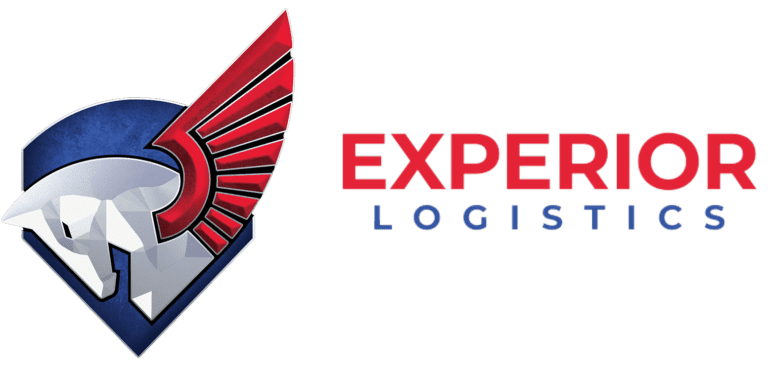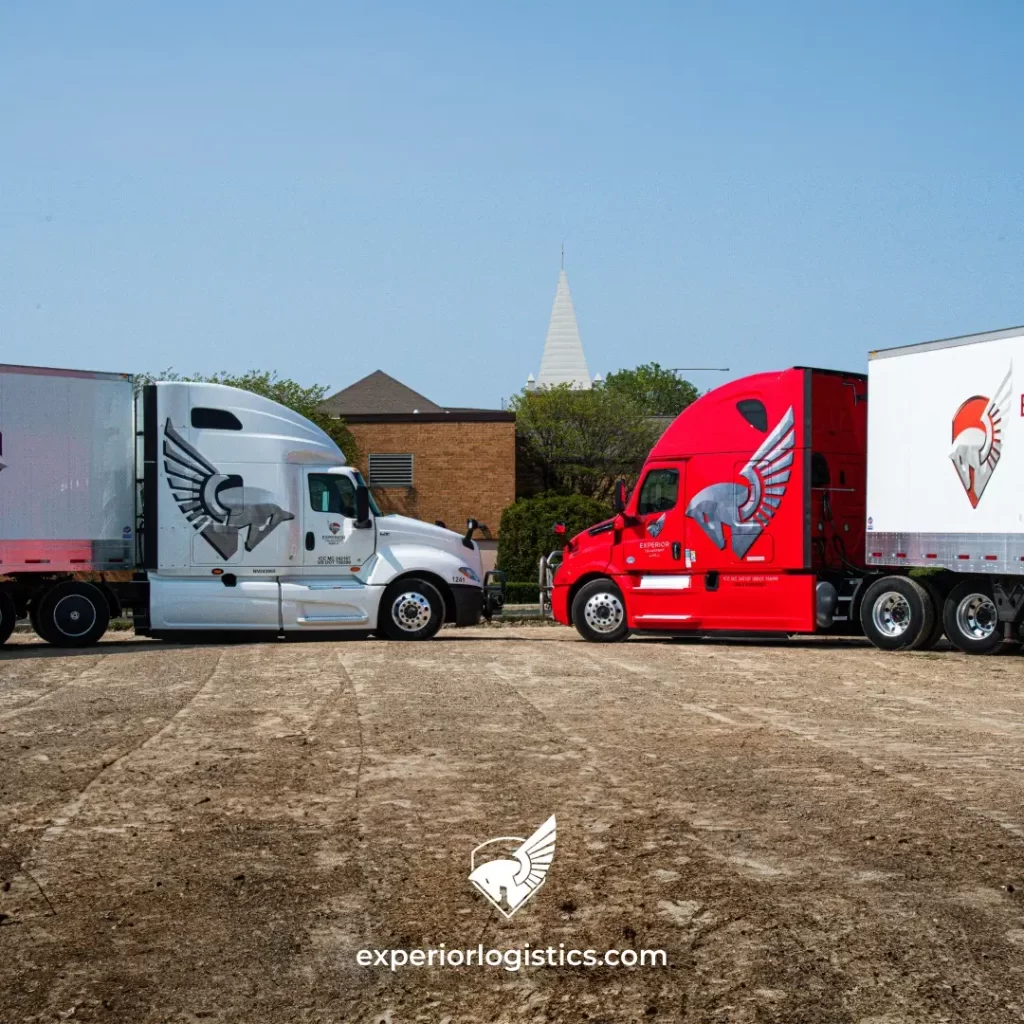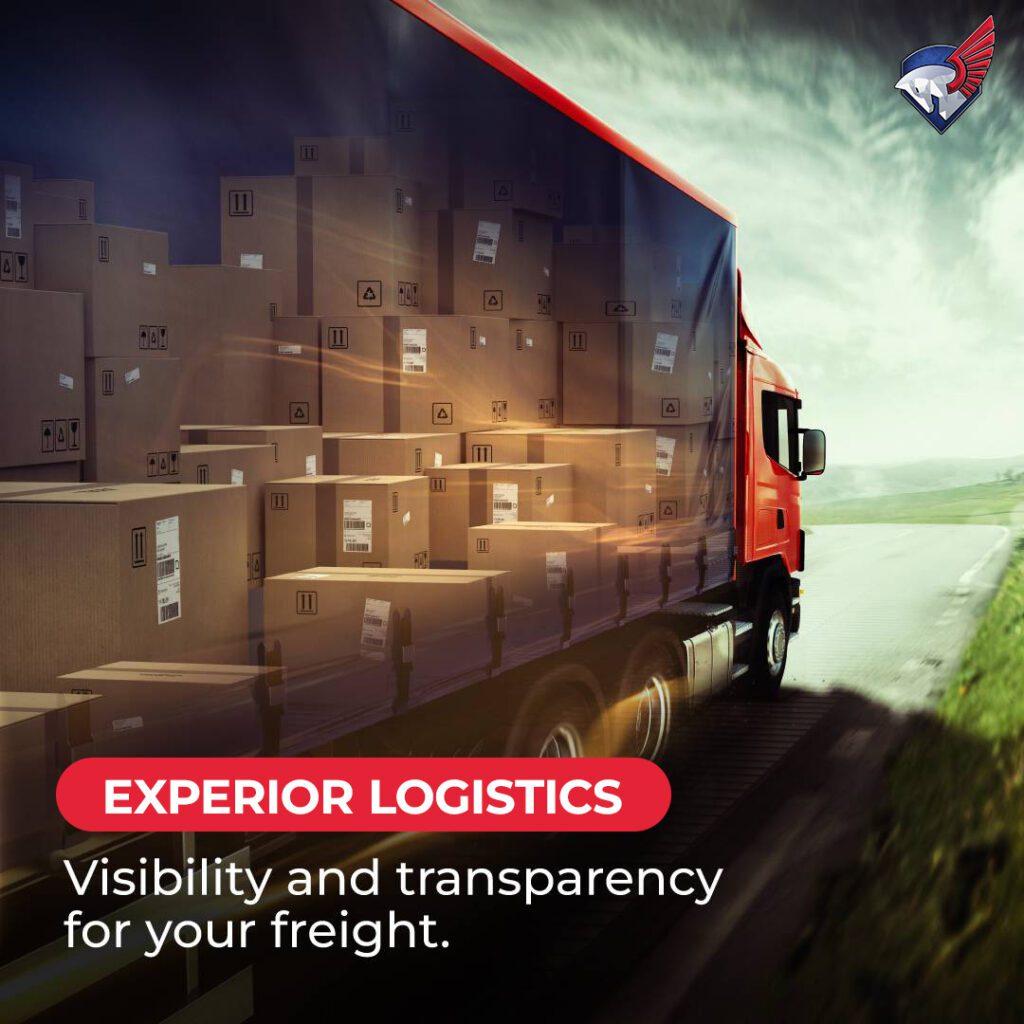The Role of Data Transparency in Modern Logistics
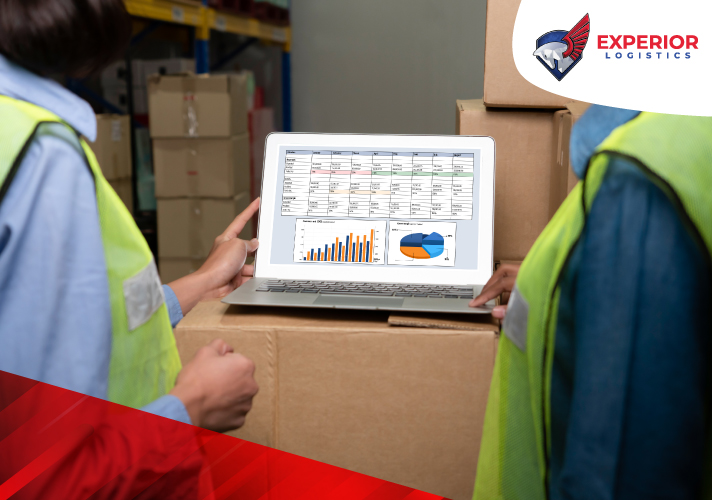

How confident are you in the current data transparency of your supply chain? Data transparency is essential if you want to establish trust with your customers. Businesses rely on real-time data to track inventory, shipments, and other important information. As a business owner, you need that same data transparency from your 3PL provider to address complex supply chain issues with efficient solutions. Experior offers innovative solutions that incorporate modern technologies and years of American logistics transportation expertise. Learn about data transparency’s role in global transportation logistics to empower your decision-making efforts. Making Smarter Decisions When stakeholders can access real-time supply chain visibility, making important decisions is no longer guesswork. For example, an American logistics transportation manager may see that a storm will delay a shipment heading to a certain destination. The manager can use that real-time information to reroute the shipment and potentially avoid a delay. Data transparency also helps global transportation logistics stakeholders make vital decisions about inventory. For instance, a clear, up-to-the-moment view of stock levels will help you avoid stockouts or overstock issues. Since both types of problems are wasteful, data transparency in inventory management helps control costs. Additionally, sufficient stock will keep your customers satisfied. Inventory management programs can even help track product performance over time. If you want to keep your inventory relevant, you can see when products lose or gain popularity. Building Trust To build trust with your customers, you need a trustworthy 3PL logistic services. You count on your 3PL logistic services to deliver damage-free goods on time and at the right cost. Data transparency is an important part of meeting those requirements. If you have access to real-time information, you can see if there are problems like carrier delays or data inconsistencies. This gives you the knowledge you need to manage your own operations confidently. Experior’s technologies equip you with that knowledge. Transparent billing is also important in global transportation logistics. You don’t have to worry about surprises when you can clearly see an outline of costs. Knowing what to expect also helps you plan your own costs. Financial transparency is especially important for maintaining long-term business relationships. Maximizing the Benefits of Technology Real-time tracking, blockchain, and other technologies have improved data transparency for global transportation logistics providers such as Experior. Some technologies can track shipments and automatically send alerts. They also provide alerts that 3PL logistic services can share with you. For example, you may receive an alert about temperature changes in a refrigerated truck delivering your inventory to a customer. In such a case, it’s essential to know if there may be a risk of spoilage. Some companies are researching the ledger protection that blockchain technology offers to improve data transparency. This can potentially improve traceability across the supply chain and reduce the risk of tampering. Each block in the chain has a cryptographic hash of the last block. Alteration requires whole-network consensus, which makes tampering nearly impossible. Using the right technologies can improve the analysis of large data sets. Technologies can optimize routes, reduce delays, and much more. When 3PL logistic services like Experior offer these technologies, you have more confidence in making important decisions for your business. Managing Compliance There are many global transportation logistics risks, some of which relate to compliance. For example, delays may occur because of customs issues or other problems. Transparent data sharing reveals potential risks and provides opportunities to address them. For instance, real-time data for the customs clearance process can help your 3PL deal with an issue immediately. Doing that may prevent delays that could otherwise cost your business money or important customers. In certain industries, compliance is a major concern. For example, there are stringent federal and state rules about transporting and storing foods or pharmaceuticals. You must have confidence that your 3PL complies with all applicable regulations to avoid costly problems. Experior prioritizes compliance to help protect our reputation and yours. Experior’s Data Transparency Commitment Experior is serious about using data transparency to maintain trust and your company’s good name. We understand how critical transparency is at every step of American logistics transportation. We demonstrate our commitment to data transparency with good communication, clear billing, and real-time visibility into product movement. We strive to improve operational efficiency and continuously improve our data transparency benefits. Our goal is to help clients meet the demands of changing markets in a competitive world. To discover how our global transportation logistics strategies can elevate your business, contact us today.
Smooth Operations Advantages of Warehousing with Experior
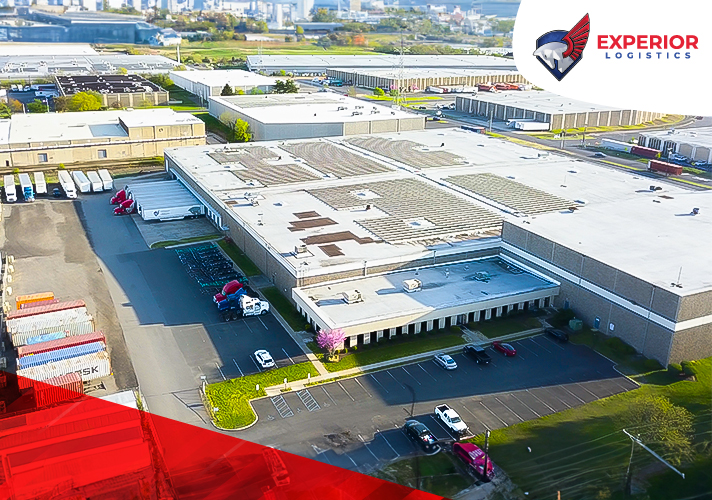

In the fast-paced world of e-commerce, it is critical to have a dependable warehousing provider. Accuracy, growth, cost control, and other factors are important to consider when looking for the right warehouse and distribution services. Working with the right entity offers plenty of benefits for your business. At Experior, we provide innovative, customized logistics and warehousing solutions that encompass all your unique needs. These are the top advantages of warehousing with Experior. Efficient Logistics and Warehousing Solutions With efficient logistics plans, you have the confidence of fewer delays. Warehouse distribution services must have streamlined processes to maintain a high level of efficiency. In addition to this, they must use the latest technologies that support improved outcomes. Also, efficient logistics and warehousing solutions give you the benefits of improved workflows and faster order processing, all of which lead to reduced lead times. When you add real-time tracking integration, you have more control and the ability to monitor orders. You have improved visibility into shipping steps and warehouse inventory with real-time tracking technologies. Market demands often require quick choices, and real-time tracking gives you the important data you need to make informed decisions that promote efficiency in warehouse storage and distribution. Strategic Locations With many strategic warehouse locations, Experior can quickly fulfill your company’s orders. These locations are often near larger cities or urban areas. Since popular items are available there, they take less time to reach most customers. This geographic advantage leads to improved customer satisfaction with delivery times. Another related benefit is having a competitive advantage. When you can offer quicker delivery than competitors, you have the opportunity to gain more customers. Transportation costs are also lower when you work with a warehousing solutions provider that has strategic locations. With items closer to customers, the delivery trips are shorter. Additionally, vehicles can use smart route planning or route optimization technologies to further reduce costs. Improved Inventory Control Modern inventory warehouse management systems improve accuracy, which helps reduce costly errors in warehouse storage and distribution. As a result, there are fewer risks of overstock problems or stockouts. Less inventory turnover can help control costs as well. Many inventory warehousing solutions include automated replenishment features that use tracking to automatically reorder items when levels are low. In addition to reducing the risk of errors, automated warehouse management systems remove some of the burden from your staff. Our company also offers convenient return warehouse distribution services to help you improve inventory tracking. More Scalability Greater scalability is critical for success in the global e-commerce market. Our scalability in warehouse distribution services allows you to increase or decrease your warehouse storage and distribution needs when demand fluctuations occur. This is advantageous if you have seasonal influxes. It is also beneficial if you have a new business and a growth-focused strategy. Our expansive infrastructure and other warehousing solutions give you the advantage of working with a company that can handle your changing needs without sacrificing quality or efficiency. At Experior, we are committed to helping facilitate your growth goals. Greater scalability improves adaptability and means more customization options for your company. There are value-added warehouse and distribution services to fit your specific needs. For instance, you may need packaging or kitting services. Those and other additional warehouse and distribution services allow you to meet the expectations or fulfill the specific needs of your customers. Optimized Security Our facilities have modern security warehouse management systems and features. We understand that your reputation is your most valuable asset and are committed to protecting it. When a facility has inadequate security, you are at risk of delays and losing money. With our commitment to secure warehousing solutions, you have the assurance that your inventory is safe. Our company has developed multi-faceted security protocols that reduce the risks of damage, loss and theft. Get Customized Warehousing solutions When you work with Experior, you’ll always have peace of mind about compliance issues. As an FBA-compliant 3PL, we can optimize delivery strategies to meet your specific compliance needs. With the complexities of customs and other regulations, knowledge of compliance requirements is essential in global logistics. We provide real-time information that gives you visibility into the supply chain. You can review inventory levels, track shipments, and more. Contact us today to experience our innovative logistics and warehousing solutions.
Common Challenges in Outsourcing Logistics


Choosing to outsource logistics can transform your business, adding efficiency, scalability, and access to logistics expertise that would be hard to build in-house. But like any business strategy, outsourcing logistics comes with its own set of challenges. From supply chain issues to communication gaps, overcoming these obstacles is key to making the most out of your third-party logistics (3PL) partnerships. Let’s take a closer look at the most common outsourcing hurdles and how to overcome them effectively. Supply Chain Issues, Communication Gaps, and Logistics Strategies When you outsource logistics, you’re essentially putting your supply chain in the hands of another company. This brings a unique set of challenges, especially around supply chain issues, communication gaps, and creating robust logistics strategies. Let’s break down these common pain points and how to address them. 1. Supply Chain Issues: Maintaining Efficiency and Flexibility If you outsource logistics, it means you are relying on a third party to ensure everything flows smoothly—from production to end-user delivery. However, common supply chain issues can disrupt this flow. Factors like warehouse shortages, delivery delays, and unpredictable demand can be difficult to manage, especially when they fall outside your control. To address these issues, consider partnering with a 3PL provider that has a flexible and scalable network. For example, Experior Logistics offers a network of warehouses and transportation options that span the entire U.S., which can help buffer against supply chain disruptions. A good 3PL can pivot quickly and redirect resources as needed, ensuring that your products are stored and delivered efficiently. Additionally, make sure your logistics provider uses advanced technology for supply chain tracking and reporting. This can give you up-to-the-minute visibility into the logistics pipeline, helping you respond quickly to any issues that may arise. 2. Communication Gaps in Outsource Logistics Effective communication is critical when you outsource logistics. With multiple stakeholders involved, communication gaps can quickly lead to misunderstandings, delays, and even customer dissatisfaction. Language barriers, time zones, and differences in technology platforms can add complexity to an already intricate logistics process. The key to bridging communication gaps is establishing clear expectations from the outset. Schedule regular check-ins with your logistics provider and set up real-time communication channels for urgent issues. Many companies benefit from using digital platforms that provide a shared view of logistics activities, enabling both parties to monitor progress, flag delays, and coordinate adjustments in real-time. Experior Logistics, for instance, uses a global tracking system that allows clients to monitor shipments and communicate directly with team members. This system provides a seamless link between your operations and the 3PL provider, which can reduce potential communication breakdowns and ensure smoother workflows. 3. Logistics Strategies: Balancing Cost and Efficiency Choosing to outsource logistics involves creating logistics strategies that align with your business goals. But sometimes it can be hard to strike a balance between cost and efficiency. Often, companies worry that outsourcing will drive up costs without delivering a proportionate return on investment. To build a cost-effective logistics strategy, start by defining what you want to achieve. Do you want to cut costs, expand your reach, improve delivery speeds, or all of the above? Once your priorities are clear, work with your logistics provider to create a tailored approach. A well-structured logistics strategy should include efficient warehousing, strategic freight buying, and scalable operations to accommodate changing demands. Experior Logistics, for example, leverages bulk freight buying power to lower transportation costs. By working with a provider that negotiates on your behalf, you can achieve lower per-unit shipping costs, making it easier to maintain a budget-friendly logistics plan. Furthermore, our network of 1 million square feet of warehouse space helps to meet capacity needs, minimizing the risk of stockouts or overflow issues. Reduce Risks When You Outsource Logistics Managing risks is part of any outsource logistics strategy, and outsourcing is no exception. While outsourcing offers many advantages, like access to logistics expertise and scalability, it also has potential downsides. These include hidden costs, loss of control over customer interactions, and safety risks within warehouses and on the road. Start by evaluating any hidden costs associated with outsourcing. Ask your 3PL provider for a detailed breakdown of charges to avoid surprises later on. Additionally, consider conducting regular performance reviews to ensure that your provider meets safety and efficiency standards. High-quality 3PL providers, like Experior Logistics, adheres to both domestic and international regulations, ensuring your goods are managed safely and legally across state lines and borders. In addition to regulatory compliance, we also maintain high safety standards, reducing the risk of workplace accidents. Conclusion Deciding to outsource logistics has significant benefits, from cost savings to increased efficiency and scalability. However, it’s essential to recognize the potential challenges—from supply chain issues to communication gaps and logistics strategies. When you choose Experior Logistics as your 3PL provider, you gain a reliable partner capable of overcoming these obstacles with ease. We offer nationwide reach, extensive warehouse capacity, and advanced tracking and communication systems to ensure your logistics operations are seamless and efficient.
Global Warehouse Solutions in Emerging Markets


Global warehouse solutions are reshaping the way businesses manage inventory, fulfill orders, and expand into new markets. With demand for efficient, high-tech warehousing growing rapidly, emerging markets are quickly becoming hotspots for innovative warehouse management and global supply chain enhancements. In this article, we will explain how businesses like yours can benefit from strategic, technology-driven warehouse solutions that help unlock growth opportunities in emerging markets. The Power of Warehouse Management in the Global Supply Chain Expanding into emerging markets presents a world of opportunity for companies aiming to extend their reach and reduce operating costs. Emerging markets—countries like Brazil, India, Vietnam, and Indonesia—are building up infrastructure, technology, and skilled workforces, making them ideal locations for global warehouse solutions. In these regions, the combination of affordable labor and expanding e-commerce demand opens the door to cost-effective warehousing and improved logistics solutions. Why Emerging Markets? Emerging markets provide the space, resources, and economic conditions to support high-growth business needs. As supply chains become more complex, businesses are looking for ways to reduce transit times and get products closer to customers. Hence, by locating warehouses in or near emerging markets, you can respond to customer demands more swiftly, streamline your global supply chain, and reduce costs on transportation and logistics. These markets are also investing heavily in warehousing and logistics infrastructure, including transport networks, ports, and trade-friendly regulations, which makes entering these regions even more attractive. With the right warehouse management strategies, you can tap into these growing markets with confidence, ensuring a reliable supply chain and expanding your customer base. Integrate Smart Technology into Global Warehouse Solutions With more companies pursuing international expansion, smart technology is the next essential element in creating effective global warehouse solutions. When entering emerging markets, automated systems like Warehouse Management Systems (WMS), Radio Frequency Identification (RFID), and the Internet of Things (IoT) can help you manage warehouses more efficiently and support a responsive global supply chain. The Benefits of WMS in Emerging Markets Warehouse Management Systems (WMS) are the backbone of efficient, technology-driven warehouse operations. A WMS allows you to keep track of inventory in real-time, minimizing errors and improving order accuracy. In emerging markets where logistics networks are still developing, a robust WMS can provide much-needed oversight, enabling you to: Anticipate stock levels Plan for demand fluctuations And make quicker decisions This results in: Fewer disruptions Faster order fulfillment And a seamless connection to your global supply chain RFID and IoT for Enhanced Inventory Tracking RFID tags and IoT-enabled sensors are becoming must-haves in global warehouse solutions. RFID technology lets you monitor inventory in real time, so you always know exactly where products are located. IoT sensors track environmental conditions within the warehouse, from temperature to humidity, which is essential for products that require specific storage conditions. With better tracking and environmental management, you can reduce product spoilage and improve storage conditions, keeping products safe and fresh during long shipping processes. By implementing these technologies in your warehouses, you’ll have a streamlined, tech-forward system that enhances efficiency while keeping costs manageable—a winning combination in any emerging market. How to Adapt to the Unique Challenges of Emerging Markets While emerging markets hold incredible potential for growth, they also come with unique challenges that global warehouse solutions must adapt to. Variability in infrastructure, regulatory requirements, and currency fluctuations are just some of the factors that can impact warehouse management. Addressing these challenges proactively is key to maintaining an efficient global supply chain. Choose Your Infrastructure and Logistics Networks Wisely In some emerging markets, infrastructure may not be as developed as in more established economies. Ports, roads, and airports may face congestion, impacting transportation times. However, strategic warehouse location choices can help you avoid these bottlenecks. Opt for locations near major transport hubs or regions where local governments are investing in infrastructure improvements. This way, you can maximize transit efficiency and minimize delays, keeping your supply chain moving smoothly. Comply with Local Regulations Import and export regulations vary widely, especially in emerging markets, where trade policies may evolve quickly. Your warehouse management strategy must prioritize compliance to prevent delays, fines, or other disruptions. Global warehouse solutions, like Experior Logistics, include trade compliance experts to ensure all shipments meet local and international standards. Therefore, by partnering with a reliable compliance team, you can overcome the challenges of cross-border trade and avoid penalties that could impact your bottom line. Handle Currency and Exchange Rate Volatility Emerging markets may face fluctuations in currency value, which can impact the cost of goods and profit margins. To avoid this, businesses often employ currency hedging strategies or work with local financial partners to reduce risk. Overall, having a clear plan for currency management will protect your operations from exchange rate volatility and allow you to maintain stable prices for customers, regardless of market fluctuations. Leverage Data for Smarter Warehouse Management In the age of data-driven decision-making, analytics and predictive tools are invaluable assets for global warehouse solutions. Emerging markets, where customer demand and infrastructure are rapidly evolving, are ideal candidates for data-focused warehouse management approaches. This provides deeper insights into inventory needs, consumer demand, and logistics trends. Use Predictive Analytics in Inventory Management One of the greatest benefits of data analytics is the ability to predict demand patterns, allowing you to adjust inventory levels accordingly. By applying predictive analytics to your warehouse operations, you can: Anticipate market trends Avoid stockouts And reduce excess inventory costs This is especially useful in emerging markets, where consumer demand can fluctuate based on local events, economic conditions, and seasonal changes. Build Customer Trust through Transparency Today’s customers value transparency and real-time visibility in order tracking. By using data to monitor shipments and communicate expected delivery times, you can offer customers a better experience and build trust. Furthermore, with tracking technologies and analytics integrated into your global warehouse solutions, you’re able to provide accurate delivery estimates and immediately address any delays that might arise in emerging market regions. Enhance Security with Blockchain Technology Data security is a top priority
Understanding Freight Forwarding and Its Importance
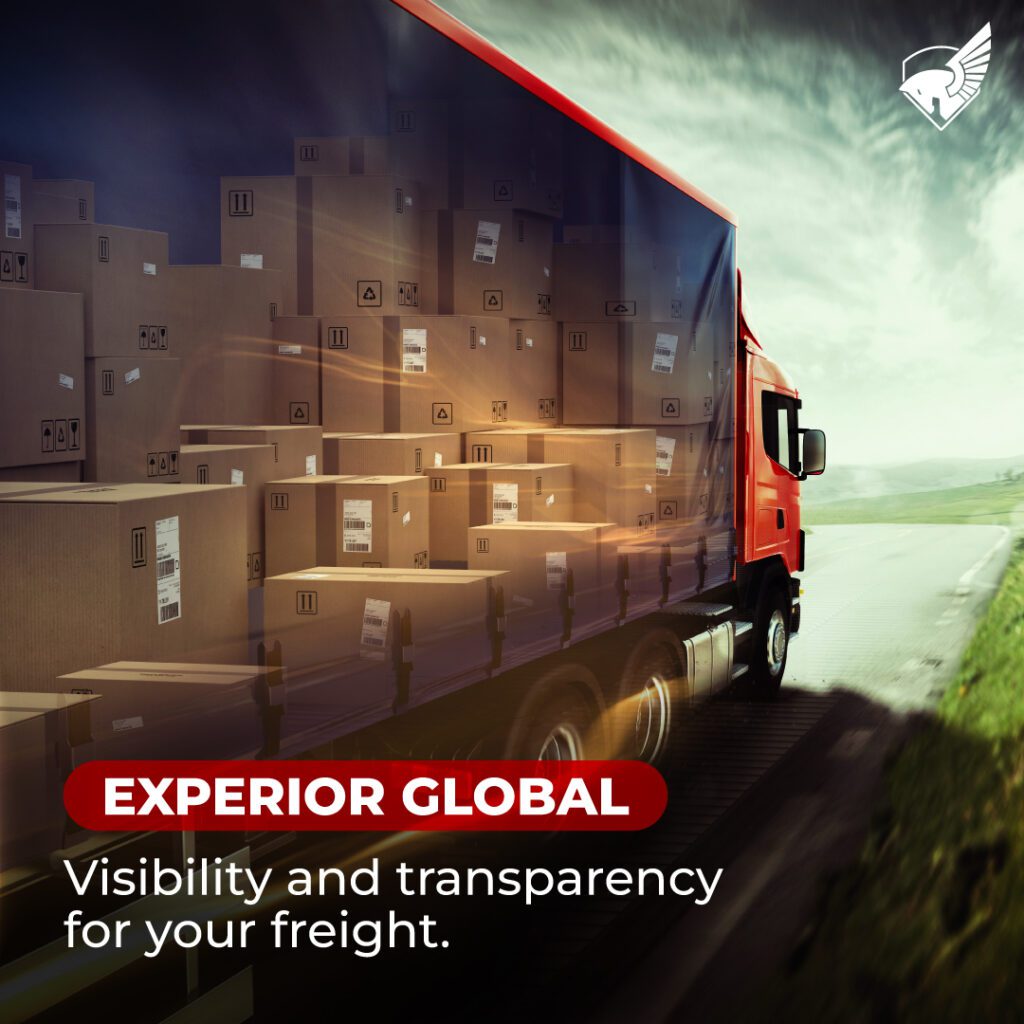

Freight forwarding plays a vital role in keeping the movement of goods smooth from one point to the next. If you want to enter the world of global commerce, freight forwarding is essential to your success. The service allows you to overcome complex obstacles (for both domestic and international shipments) without being an expert in logistics. It helps to understand how international freight forwarding works and how important it is to global trade. How International Freight Forwarding Works Freight forwarding encompasses shipping and coordination activities. As goods move from one point to the next, they may go through several modes of transport. For example, they may travel by road, sea, rail, and then road again before they reach their final destination. The companies that provide freight forwarding services are third-party logistics entities. Their role is to manage shipments, and they must handle documentation and regulatory issues. There are several steps in the freight forwarding process. Point of Origin Processes The first step is export haulage. During this process, a shipper moves goods to a freight forwarder’s warehouse. The next step is export customs clearance. A freight forwarder prepares and provides the required documents for clearance. The goods must be inspected and prepared for transportation at the origin warehouse. In some cases, smaller loads are combined and sent as a larger shipment. Freight forwarders arrange for cargo space on planes or ships and provide important documentation. Destination Processes After a shipment arrives, customs authorities must clear it. Freight forwarders make sure that tariffs, taxes and duties are paid. Also, they are familiar with regulations and ensure shipments meet all compliance criteria. Next, the goods are sent to a third-party logistics provider or warehouse. They then go through inspections before import haulage, which is the final step. The goods may be sent to a customer, a warehouse or somewhere else. The Important Role of Freight Forwarders in Global Trade Regulations and shipping processes are complex, and freight forwarders have the knowledge needed to overcome the challenges related to them. Compliance is critical for the timely movement of goods. Also, freight forwarders improve cost efficiency. Since they build relationships with shipping companies, they can help negotiate favorable contracts. Additionally, they can often help consolidate shipments for more affordable costs. Freight forwarders can help mitigate risks as well. They find the right insurance, ensure careful packaging of goods, and more. These companies also help you save time. Since freight forwarders manage every step of shipping, you have more time to focus on your operations. Having a focused shipping service ensures that goods arrive quickly. If your business expands, a freight forwarder will offer scalable support for your growing needs. Without freight forwarders, economic growth would be slower and more difficult. How Experior Leads by Example Experior uses modern technologies and advanced data analytics to revolutionize the logistics industry and achieve sustainable solutions. We use eco-friendly practices to reduce our environmental footprint. Our company looks for ways to lower fuel consumption, optimize routes, reduce packaging waste, and ensure efficient delivery. Additionally, we invest in renewable energy. By doing these things, we help reduce both customer costs and environmental impacts. We take the responsibility of being a leader in the industry seriously, and our entire team is committed to upholding our values. Many people research companies to see if they are responsible, which is why environmental priorities are important. Working with a company that prioritizes sustainability shows that you care about the environment and your market’s values. Maintaining a strong brand requires dependability as well. To show your market that you are dependable, you need a logistics company that is also reliable. If you want to move goods with ease and confidence, Experior will facilitate the process. With an experienced freight forwarder, you have an advocate who will help you grow and thrive in global trade. We know how to leverage technology to develop customized solutions. Connect with us today to learn how we can fulfill your freight forwarding needs.
The Impact of E-Commerce Growth on Logistics Strategies


How E-Commerce Growth Affects Logistics Strategies During the first 10 months of 2023, online sales generated a staggering $100.1 billion nationwide. This growth of online shopping is transforming logistics strategies as consumers demand faster and more reliable deliveries. To meet these e-commerce needs, logistics companies and businesses within supply chains have had to develop new operational models. These are some ways e-commerce growth has affected logistics strategies. Changing Consumer Expectations Convenience is a benefit that consumers connect to online shopping. They expect to be able to purchase what they need quickly using their smartphones. More companies today offer fast delivery, real-time tracking, easy returns and other benefits. These perks have heightened consumer expectations across the board. To stay competitive, businesses must find ways to offer these services. This is where partnering with the right third-party logistics provider, one that knows how to exceed consumer expectations, is crucial. Technological Advancements in Logistics Today’s companies use advanced technologies to integrate artificial intelligence (AI), machine learning (ML) and the internet of things (IoT) to streamline their logistics operations. Additionally, big data analytics has changed the landscape of logistics. AI and ML can assist with route optimization, planning, demand forecasting, product availability and inventory optimization. IoT devices also provide live visibility into products in transit. This helps reduce losses, improve efficiency and monitor movement. With big data analytics, businesses can obtain consumer behavior insights. Businesses can also optimize supply chain operations to make better decisions. Predictive analytics provides the benefits of improved planning and more accurate forecasting. By partnering with a 3PL provider that leverages these advancements, you’ll be better prepared for a growing market. Last-Mile Delivery Challenges One of the biggest challenges for logistics companies is last-mile delivery. It is often the most expensive and tedious part of shipping goods to consumers. There are several ways to address last-mile delivery challenges. Micro-Fulfillment Centers One of the most common solutions is using micro-fulfillment centers. They are strategically located near urban areas and boast quicker delivery times. Crowdsourcing Platforms Crowdsourcing platforms offer solutions for some companies. Postmates, Uber and other platforms allow gig workers to handle last-mile delivery on demand. This approach offers greater flexibility. Omnichannel Fulfillment Omnichannel fulfillment is another solution. Retailers use it to combine online and offline activities to create a simplified shopping experience. It can work in a variety of ways. For example, some customers may purchase a product online and pick it up in a store. It provides the immediacy that many consumers expect and guarantees that a product they want is available. This approach reduces shipping costs as well. Another approach is to ship from a store instead of a distribution center. This speeds up delivery time and improves inventory optimization efforts for some retailers. Autonomous Delivery Autonomous delivery is a logistics trend to watch in the coming years. Robots, drones and autonomous vehicles are being developed to improve last-mile delivery. Although there are regulatory challenges, these technologies can reduce costs and boost efficiency. More Sustainable Materials and Practices More deliveries increase the demand for shipping materials, which can negatively impact the environment. Both customers and retailers are becoming more conscientious about sustainable products and practices. Using eco-friendly packaging is important to reduce plastic waste. Optimizing routes to save on fuel consumption and reduce emissions is also important, and AI and ML programs can assist with this. Many companies also use low-emission trucks or electric vehicles to reduce their carbon footprint. Of course, partnering with a 3PL provider that prioritizes eco-friendly materials and practices can also go a long way toward ensuring green practices. Pandemic-Related Issues Experiencing the operational and regulatory changes of the COVID-19 pandemic incentivized companies to improve their strategies. They quickly learned how important it was to have a robust approach. Because of regulations, more consumers stayed at home, which increased the volume of online orders. This placed more pressure on logistics companies to meet demands. With that experience in mind, e-commerce businesses can plan for similar challenges in the future. Understanding the need for greater agility and adaptability can also benefit your company. Investing in technology and infrastructure is a good goal to adopt. Although the pandemic is an event of the past, the trend of online shopping is here to stay. Be Prepared for Growth The influx of e-commerce transactions will continue to affect logistics strategies in the future. It is important to create a plan that encompasses all the factors discussed earlier. When you can use innovation to adapt to changes, you may hold a competitive advantage. At Experior, we aim to help your business grow by providing complete logistics solutions. We prioritize staying on top of changes in the logistics field and have advanced technology and user-friendly interfaces to help your business thrive. From packaging and branding to assembly to warehousing and inventory management to order fulfillment and transportation management, you can rely on us to help you deliver an excellent experience to your e-commerce customers every time. To learn more about innovative logistics solutions, contact our team at Experior.
Experior Unveils $65 Million Headquarters and Logistics Campus in Schaumburg, IL
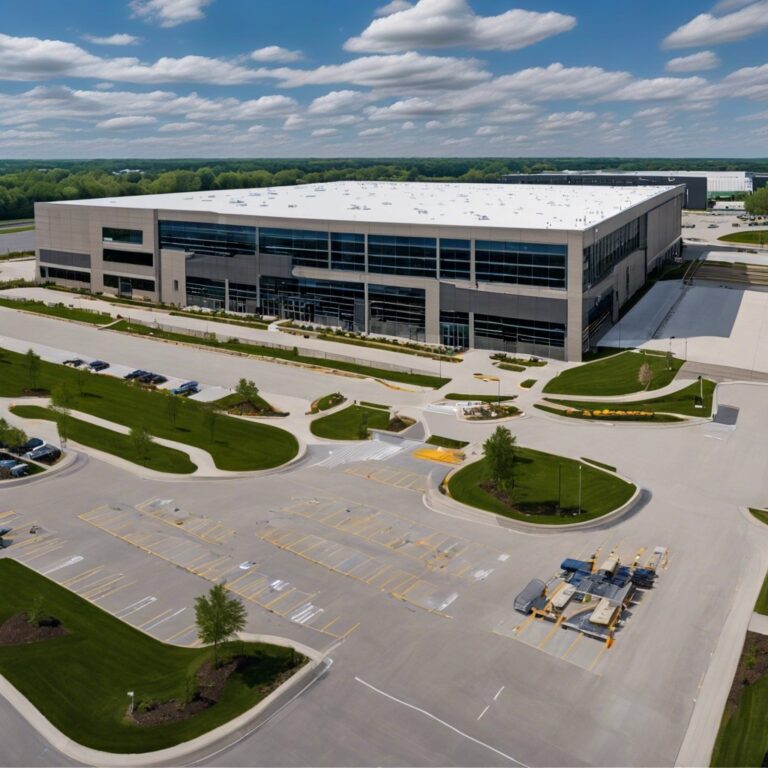

Experior Opens New $65 Million Headquarters Outside of Chicago In a move that spells big things for the nation’s logistics industry, Experior has announced the opening of a new headquarters and flagship campus in Schaumburg, Illinois. Ground broke on the ambitious $65 million project in the summer of 2023. The new headquarters combines a corporate campus with a roster of owner-occupied and for-lease operational features, including parking for hundreds of trucks and trailers, a fully equipped gas station, a convenience store, a repair shop, and a truck sales lot. We’re excited to create an impact in Chicago and around the country by showcasing a unique combination of location, logistics, and technology at our new Experior Global Illinois headquarters! How Experior Is Optimizing Chicago’s Geographical Benefits While Experior offices spread throughout Illinois, New Jersey, and Texas, the logistics giant was originally founded in Schaumburg, Illinois. The move back to Schaumburg represents a homecoming that has been 25 years in the making. By expanding its blueprint in Schaumburg, the Experior team looks forward to utilizing the logistical opportunities and unmatched reach offered by the Chicago metropolitan area. Located just over 30 miles northwest of the Windy City, Schaumburg allows Experior to tap into the central location, infrastructure, and connectedness that have made the city of Chicago one of the nation’s most important logistical hubs. A Headquarters Situated in the Jewel of American Logistics Chicago O’Hare International Airport is considered the most connected airport in the country due to its connections to six out of seven Class I Railroads, access to one of North America’s largest inland ports, entry to interstate highways stemming from nine directions, and proximity to the waterways connected to the Mississippi River, Ohio River, and the Great Lakes. Chicago is also just a two-day truck route from 83% of the continental United States. According to the Chicago Metropolitan Agency for Planning, 25% of freight trains and 50% of intermodal trains in the United States pass through the metropolitan Chicago area. As a global leader in third-party logistics, warehousing, trucking, supply chain management, and inventory management services, Experior is prepared to use the positioning of its new headquarters to help advance the transportation industry with innovations and enhanced logistics. The new Experior headquarters is located just 10 miles from O’Hare. It is also minutes from Interstates 90, 290, and 355. How Experior Is Looking Forward to Solve Logistical Challenges for Future Generations “From Experior’s inception through its expansion, our company has provided excellent service in the transportation and supply chain industry by optimizing efficiency and reducing costs,” shares Tom Dulian, chief executive officer of Experior. The new state-of-the-art campus will enable Experior to better serve our clients at every level. Experior is already considered the go-to leader for reliable, punctual, and streamlined logistics solutions for businesses in the realm of third-party logistics. However, the new campus is ushering in a golden era of growth and innovation with a reach that will be much broader than the boundaries of the headquarters. One dynamic feature of our new campus is that a large portion of the space will be devoted to offering flexible space for other firms in the logistics industry. In addition to offering outside firms access to downtown Chicago, local markets, and the rest of the geographical bounty of the Chicago area, the setup will also allow professionals within the logistics, shipping, and transportation communities to network alongside one another as part of the nation’s forward-looking strategy to tackle many of the logistical and supply chain challenges that were exposed during the 2020 pandemic. With the opening of our $65 million headquarters and logistics campus, Experior moves forward with our mission of helping businesses that need to move products and gain access to scalability, efficiency, and cost savings. With our ability to help businesses transport goods by ocean, air, or ground using our coast-to-coast and border-to-border networks, Experior sees the new headquarters as a vital part of exceeding our commitment to providing the flexibility, reliability, and security needed in the ever-changing world of transportation and logistics. Companies that work with Experior can look forward to tapping into a comprehensive range of solutions tailored for efficient cross-docking practices that minimize downtime, secure warehousing, optimize delay management, and streamline freight tracking. To learn more about us, contact us today.
The Right Logistics Support for Storage and Delivery
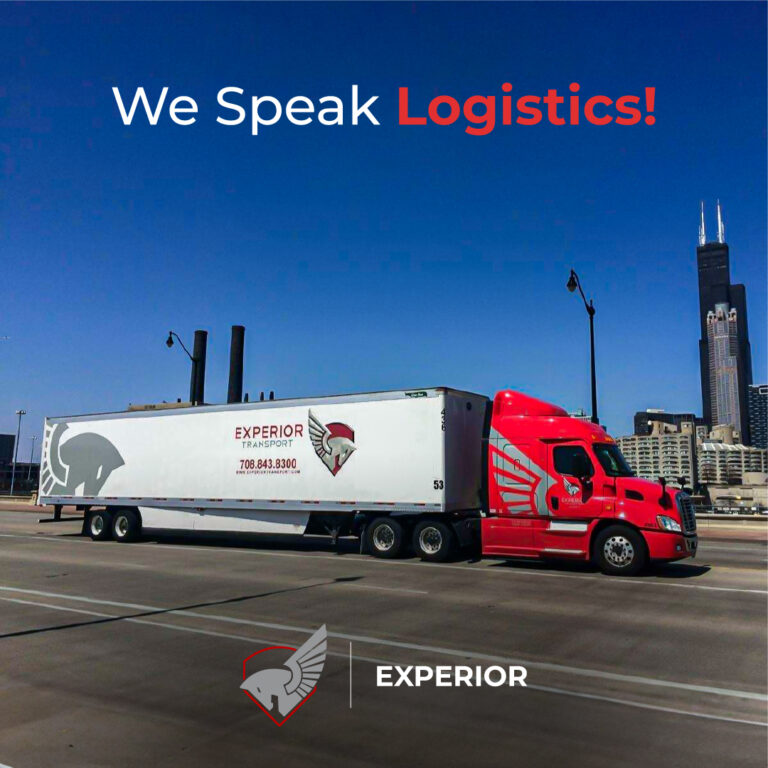

More than a couple of years ago, the worldwide pandemic heavily disrupted logistics. Rising interests and inflation coupled with the Ukraine War have made the matter worse, posing many more severe challenges to businesses throughout the globe. In a word, global logistics has come under heavy challenges and stress, and so is seeking to cope with the emerging situations. During the pandemic, shipping issues, as well as a shortage of warehousing space and truck drivers contributed to revenue loss. It turned out to be the worst phase for e-commerce giant Amazon. Manufacturing Challenges An efficient warehousing chain is the mantra of remaining productive amidst multi-pronged challenges. Just in Time or JIT inventory has added to the stress. In such a scenario, manufacturers start an order only after an immediate purchase request is placed. As a result, manufacturers spend less time in product making, leading to extra responsibilities on warehousing to ensure proper, up-to-date inventories so that businesses’ delivery demands are fulfilled. Customized Solutions Warehousing needs are not the same and constant across all the industries though the basic objectives remain unchanged. This has led to customized warehousing solutions that are designed to meet the specific needs of businesses. A reliable logistics company, with its well-organized and optimized warehousing and successful final mile delivery, can keep your delivery on schedule. Strategic and innovative warehousing works towards eliminating the constraints and reducing costs of logistics and shipping. Reputable logistics companies always provide flexible, agile solutions. For example, they may audit warehouse workflow. Additionally, they may provide cross-dock solutions or well-planned and improved final mile delivery. In a word, they do everything in their capacity to help in the smooth running of your business. Warehousing Requirements Businesses require warehousing for different reasons. For example, if you are launching a new office or renovating your old one, you need a safe place for your inventory. If you run a retail business and offer seasonal goods, you will need proper warehousing to keep your merchandise secured until delivered. Operational Efficiency Auditing a warehouse system is important to ensure business efficiency. A logistics service provider always checks the condition of the system before recommending improvements. The company runs a check on many things including inventory management and redundancy, warehousing layout, and order delivery. All these help in determining warehouse management and performance goals, making it easier for you to match these with Key Performance Indicators to measure success. Trust a reputable logistics management company that can keep you worry-free with their top-notch warehousing service. Conclusion In conclusion, the global logistics landscape has faced unprecedented challenges in recent years, from supply chain disruptions caused by the pandemic to manufacturing constraints exacerbated by geopolitical tensions. In such a volatile environment, businesses are turning to reliable logistics partners for support in storage and delivery. Experior Global stands as a trusted ally in navigating these challenges, offering tailored warehousing solutions designed to meet the diverse needs of businesses across industries. Our strategic approach to warehousing optimization and final mile delivery ensures that your goods are handled with care and delivered on schedule, even in the face of complex logistical hurdles. With a focus on operational efficiency and innovation, Experior Global helps businesses streamline their warehouse systems, improve inventory management, and enhance order delivery processes. Our commitment to excellence and reliability means that you can trust us to keep your operations running smoothly, allowing you to focus on your core business objectives. Experience the difference with Experior Global and take your storage and delivery capabilities to the next level. Contact us today to discover how our comprehensive warehousing solutions can support your business growth and success.
Sustainable Logistics Trends and Solutions to Neutralize Supply Chain Challenges
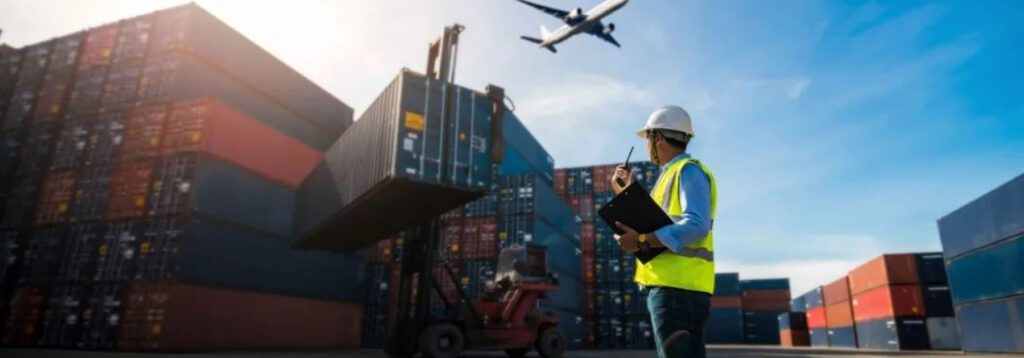

With rapid growth in the logistics industry, it is experiencing new challenges in 2024. However, these challenges also come with a host of opportunities. As businesses are preparing for strategic planning, it is important to address supply chain challenges. The leading names in the logistics industry are looking for ways to overcome challenges by partnering with other trucking logistics companies and their clients. This is contributing to the expansion of the nationwide trucking services network. Supply Chain Trends and Challenges To prepare for the current year’s logistics challenges, it is important to get an insight into the prevailing supply chain trends. With integrated advanced technology, businesses are now more focused on sustainability. Furthermore, the effects of global economic factors are playing a role in shaping the industry. To stay ahead, companies should develop strategies in keeping with the trends for a competitive edge. The challenges in the supply chain are inevitable. However, strategic planning can transform obstacles and odds into opportunities. Trucking logistics companies address familiar challenges including pallet management, transportation disruptions, and delays. Solutions Supply chain management solutions range from embracing strong inventory optimization to actualizing transportation strategies for delay mitigation. Entrusting a well-known logistics service provider for trucking needs ensures fast and efficient warehousing and trucking solutions. A logistics company’s commitment to precision starts with dedicated trucking logistics. These companies operate the most advanced fleet of tractor-trailers in the industry, making sure that consumable products are delivered with help of the advanced safety features and technology. If you need or prefer time-sensitive cargo for moving high-value items, dedicated trucking logistics is always there to improve efficiency and reliability. Many warehousing and trucking logistics service providers boast of their versatile cargo transportation. Standard containers cannot accommodate all cargo and in that case, flatbed alternatives serve the purposes. From unconventional shapes to oversized machinery, a leading logistics company should offer flatbed services to make room for a diverse range of products, ensuring flexibility as per your supply chain demands. Efficiency is the buzzword in the field of modern logistics. Seamless connectivity is important in the big game. Commitment to on-time delivery and using advanced technology build up a solid, stable, and successful supply chain system, streamlining goods’ movement by removing bottlenecks. In the game of supply chain challenges, it is important to play a role beyond just a service provider. Instead, the company should work as a logistics ally. Navigating the challenges requires a strategic approach and a reputable company assures its clients “We’re Always With You”. Conclusion In conclusion, as the logistics industry continues to evolve and face new challenges, it’s imperative for businesses to stay ahead by embracing sustainable trends and innovative solutions. From navigating transportation disruptions to optimizing inventory management, the key lies in strategic planning and partnership with trusted logistics service providers. Experior Global stands as a beacon of reliability and excellence in the logistics landscape, offering a comprehensive range of solutions tailored to meet the evolving needs of businesses. With our commitment to sustainability, efficiency, and precision, we empower companies to overcome supply chain challenges and unlock new opportunities for growth. Experience the difference with Experior Global and elevate your logistics operations to new heights. Whether you require dedicated trucking logistics, advanced warehousing solutions, or specialized cargo transportation services, we have the expertise and resources to meet your needs. Take the next step towards a more sustainable and efficient supply chain. Contact Experior Global today to discover how our innovative solutions can transform your logistics strategy and drive success for your business.
Outsourced Logistics Services Can Transform Your Supply Chain
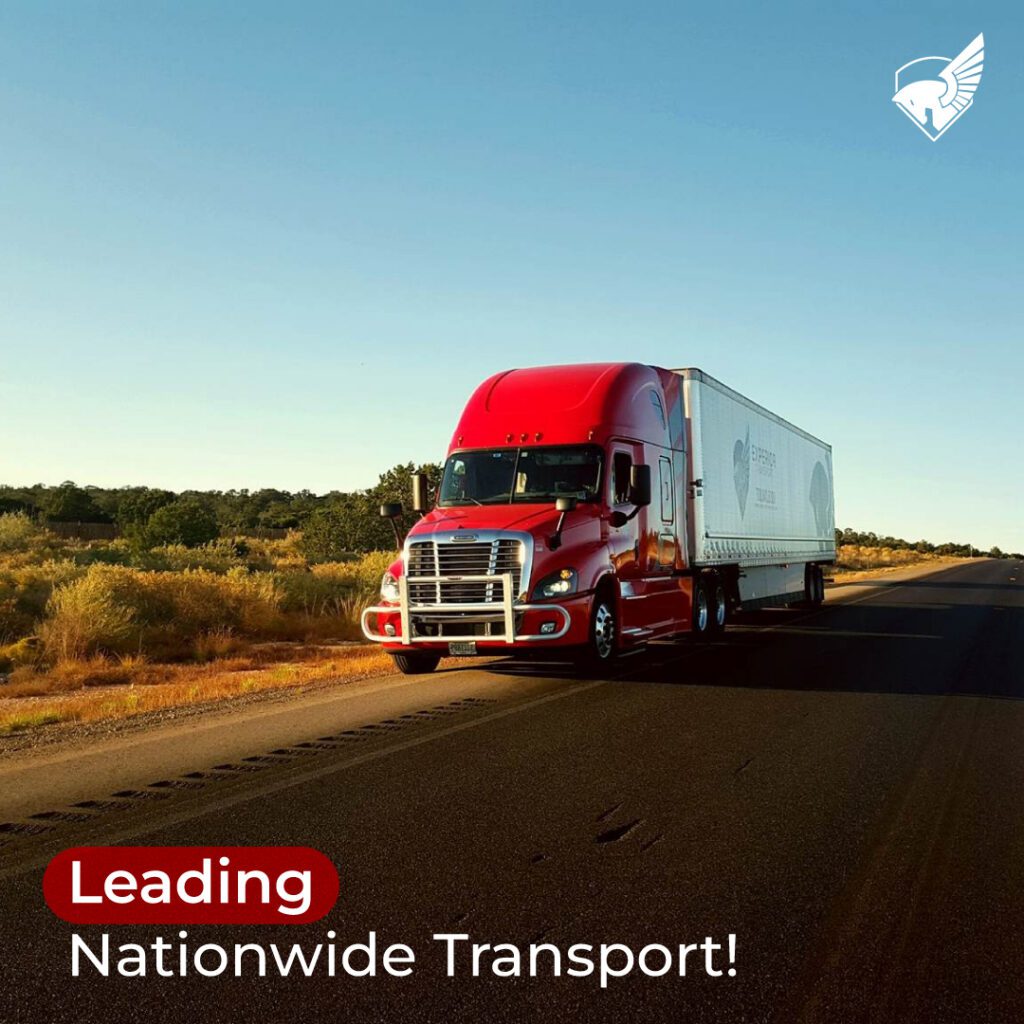

Are your clients looking for services that you don’t offer currently? Or do they need services outside your reach in the local market? These are the contexts where outsourcing logistics services becomes important. A logistics company understands that successful logistics operations are essential for efficient supply chain management. In this post, we will discuss how outsourced logistics can help your business stay operational and achieve its goals. A few companies provide both third-party and fourth-party logistics services. Every aspect of logistics management services is important and no work is too small to neglect and meet your needs. Defining Outsourced Logistics Outsourcing logistics is a condition when a company hires a third-party provider to handle a range of supply chain activities, including storage and warehousing, shipping services, and specialty services in reverse logistics and final mile delivery. When to Outsource Logistics Services? These days, horizontal business alliances are crucial as these relieve you from having to worry about potential challenges and competition. These provide two-way benefits while offering an opportunity to access real-time resources whenever required. What Are the Benefits of Outsourced Logistics? There are many benefits of outsourcing your logistics needs. Let us discuss them one by one: Reduced Overhead Expenses: The benefits of hiring an outhouse partner for your logistics management enable you to change your overhead expenses into variable figures. Strategic logistics planning prevents you from unnecessarily investing in warehousing resources, technology, and systems. It cuts down the overall expenses of running your business. Reduced Transportation Costs: Leading logistics companies have a wide network of transportation facilities. It helps them streamline transportation services, reduce costs, and optimize logistics management. Improved Communication: Any leading name in the niche of logistics services always strives for excellence by keeping the communication line to partners and customers open 24×7 hours, while holding them in high regard. Regardless of the kind of partnership or referral, companies providing outsourced services are committed to supporting customers’ individual needs for maintaining enhanced communication, successful outcomes, and improved customer satisfaction. Streamlining Supply Chain Process Volume fluctuations and increased capacity during the peak season or around the year may restrict your company’s ability to support greater opportunities during this time. Partnering with an outhouse party, that has a reputation for providing logistics support, can help optimize the entire procedure and minimize the possibilities of disruption. A large network of valuable contracts can help you with shipments. Make sure to work with the best in the business for better outcomes. Conclusion In conclusion, outsourcing logistics services can be a transformative strategy for businesses seeking to streamline their supply chain operations and achieve their goals more efficiently. By partnering with a trusted third-party provider like Experior Global, companies can access a wide range of logistics solutions tailored to their specific needs. Experior Global offers comprehensive logistics services, including storage, warehousing, shipping, reverse logistics, and final mile delivery. With our expertise and extensive network, we help businesses reduce overhead expenses, optimize transportation costs, improve communication, and streamline their supply chain processes. Experience the benefits of outsourcing logistics with Experior Global and unlock new opportunities for your business growth. Our commitment to excellence, reliability, and customer satisfaction ensures that your logistics needs are met with precision and efficiency. Take the next step towards enhancing your supply chain operations. Contact Experior Global today to discover how our outsourced logistics solutions can transform your business and drive success.
